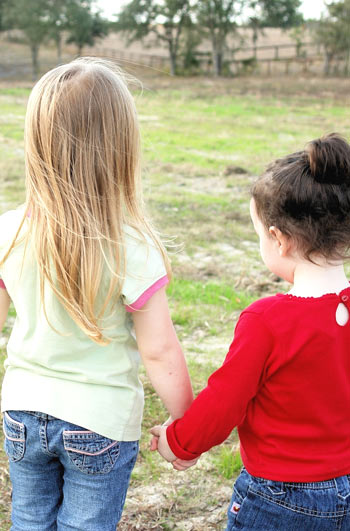 I had dinner at the weekend with a friend who was explaining the shift in culture towards disabled people. My friend is disabled by MS and was explaining a shift from:
I had dinner at the weekend with a friend who was explaining the shift in culture towards disabled people. My friend is disabled by MS and was explaining a shift from:
Medical (Poor you – there’s something wrong and we can’t ‘fix’ you – you are an unlucky victim)
to
Personal (You must take responsibility for ensuring that you can participate in society – it is still your responsibility to ask for help when you need it)
to
Social (Society must take responsibility for ensuring equal access – it is society that has the problem, not you, and should change to accommodate you).
Now, this is very interesting indeed, as it resonated with a conversation I had with one of the teachers at my daughter’s school, following a school trip.
Where does individual responsibility stop?
 Daughter 1 (our coeliac) went away for 5 days on a school residential. I talked to school about her dietary requirements in advance; both the school and I talked to the hotel. All was under control, and I sent the usual range of gluten free products for her.
Daughter 1 (our coeliac) went away for 5 days on a school residential. I talked to school about her dietary requirements in advance; both the school and I talked to the hotel. All was under control, and I sent the usual range of gluten free products for her.
It turned out that although the hotel did manage her diet very well – I have no complaints at all about them – my daughter was too shy, aged 11, to ask for her bread to be refreshed. (In case you don’t know, the gluten free bread that we get on prescription usually needs heating to make it edible. I could have sent fresh bread, but after 3 days it would have been blue and furry). She relied on her friends and on the school staff to ask for this to happen.
The teacher who had organised the trip had commented that the hotel, which specialised in hosting school trips, and which advertised that it could handle special diets, should have been more proactive in making sure that my daughter wasn’t singled out as being different by having to ask for help. I replied that my daughter is used to being different and should have been able to ask for this to be done for her. The teacher’s position was that society (represented in this case by the hotel) is moving towards seamless provision for special needs, and my daughter shouldn’t need to feel different.
I don’t think of my daughter as disabled, but she clearly does have special needs due to a medical condition, and does have some foodstuffs provided for her by the National Health Service.
Should my daughter expect society to change so that she isn’t made to feel ‘different’? Am I wrong to think that she should take responsibility for her own needs? Am I being discriminatory?
I know that this is trivial compared to the huge difficulties many people face day to day by virtue of being ‘different’ – but the underlying philosophical question is the same. The answer, of course, may be different depending on the degree of disability.
What do you think?
(And here is a link to the Coeliac UK position on living gluten free and disability discrimination …)
 |
I’ve written a book summarising what we’ve learnt over 20 years of dealing with the gluten free diet, and it might be just what you’re looking for. It packs the lessons we’ve learned into what I hope is a helpful and straightforward guidebook. It’s available on Amazon, as a paperback or for your Kindle… |



I don’t think that you’re wrong to think that you’re daughter should take care of her own needs. You’re teaching her to take responsibility for herself and that’s a great thing to teach a child. Kudos to you!
Mary Frances
Hi Mary Frances – I’m glad you dropped by. Thank you for the kind words – I do think it is important that she learns to speak up for herself.
It is interesting to me that the teacher is concerned with your daughter not feel different. Since when do we all want to be the same? I guess we all want to be normal like everybody else. But who defines normal? Individuality and responsibility should triumph. Society cannot be there every time someone needs something. It is hard to ask for help sometimes but it is a good thing to practice. I think your reasoning is right on.
Renae, you make some good points. I wouldn’t want to live in a society that was ‘always there’ every time I did need help … I think you’d have to give up a lot of individuality to have that kind of society.
Help often comes from friends and family, rather than from some official organisation, and it can be hard to ask for help even from those close to you, but you are so right that it is a good thing to practice – and to offer help in return!
There probably is a phase at teenage – for some of us at least! – to want to ‘fit in’ with the crowd. But if it is a decent group of peers, they should be able to accept a degree of difference. I’m hoping so, anyway – we’re not up to teenage yet.
I found your site from the Carnival of Principled Gov’t, and what a treat this entry is.
We have a wf home – one child in four cannot have wheat. When we travel, I do what I need to in order to ensure his health. We are teaching him to be capable of handling it on his own when he leaves home. While I do appreciate restaurants that mark their GF items, I don’t expect it at every turn.
When the time comes for him to attend camps and other trips, I’m going to have to take a deep breath and remind him (and myself) that the ball’s in his court. It’s his responsibility to read labels, request substitutes, take extras, etc.
I’m sorry your daughter felt too uncomfortable to ask for help (oh, it’s painful to be shy!), but I do hope she’ll learn to see it as making use of the services available (as in “the service industry”, not “social services”) – and that it’s no different than asking for more butter or a refill on water. She’ll get there (as long as that teacher stays out of it! LOL!)
Dy
Hi Dy. I really like your way of putting it … like asking for more butter or water. I’ll have to explain it to her like that, and see if it helps!